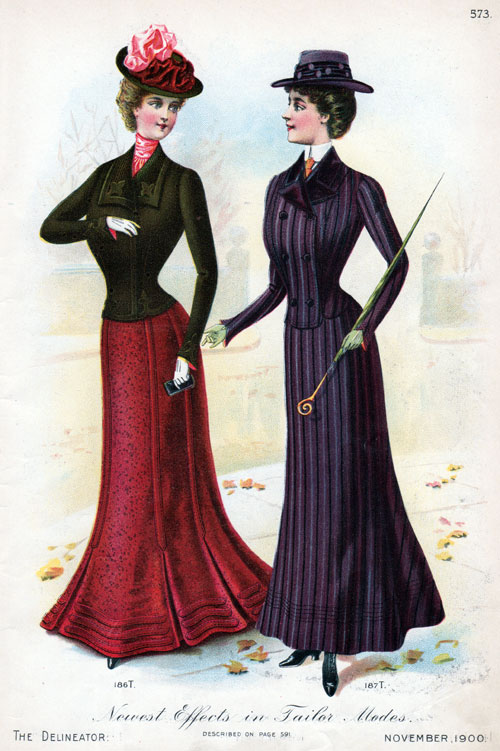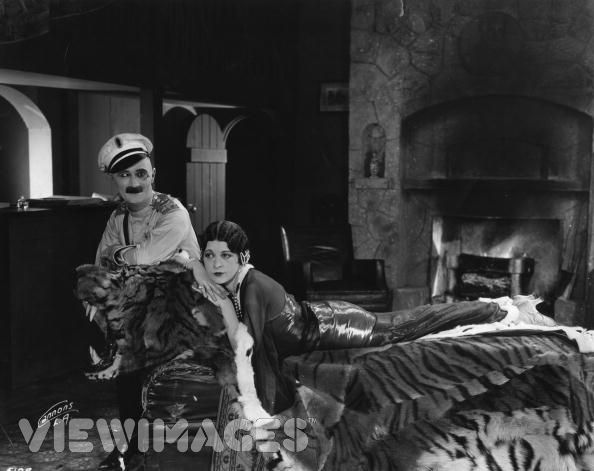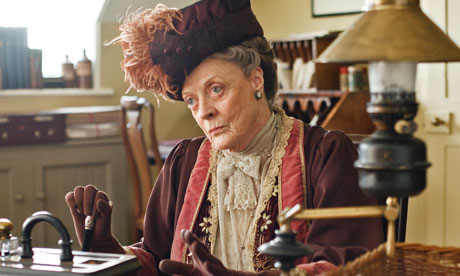One of the most striking differences between American women and English women was the role each played after marriage. The young American girl was sophisticated and cultured, with easy ways and unconscious charm when compared to her English counterpart, but in American society, the position of a married woman was rather restricted to home and hearth. Yes, aristocratic English women had lesser rights than American women, but upon their marriage, they were expected to not only run a large and extensive household, but to support their husband in his choice of career–especially within the political sphere. Because of this gulf in upbringing, more than a few young American heiresses floundered in their new position (and ironically, many American women married to American men chose to live abroad because of the increased social position and freedom post-marriage). In England, women ruled not only on the throne, but in the halls of Westminster. So important was the political hostess to her husband’s career, a gentleman in pursuit of a suitable bride would more often overlook the beautiful, gay young lady for her plainer and quieter, yet better-connected and erudite counterpart.
In the past, titled women such as Georgiana, the Duchess of Devonshire, whose “kisses won the votes of Covent Garden porters for Fox,” and others like Elizabeth, Duchess of Northumberland, the Duchess of Portland, the Countesses of Derby and Beauchamp, the Ladies Waldegrave, etc, all “reveled in election fights in the days when every man knew how his neighbor had voted, and when polling days were marked by fierce rioting and savage intimidation.” By the Edwardian era, it was acceptable for women to canvass for votes, make speeches and otherwise take public part in their husband’s political campaigns. The most notable was Lady Randolph Churchill, who made waves both during the extent of Lord Randolph Churchill’s career, and that of her son Winston’s–her plea, “Never mind about dear bread. Vote for dear Winston,” when he was fighting for election in North Manchester became infamous.
The social success and personal satisfaction of a political wife obviously depended on her own temperament as well as her husband’s talents and popularity. An accomplished political hostess could oil the wheels of her husband’s career, though a talented hostess could rarely push her husband’s interests if a powerful political enemy halted his progress. Anomalies to this process were Arthur Balfour and W.E. Gladstone, the latter of whom had a retiring wife, and the former, who had no wife at all. Women were denied a formal education but they often were very well read, articulate and knowledgeable about politics, and they grew up immersed in a political atmosphere and revered parliamentary leaders as their heroes, espousing the cause of their family’s party. For example, the Lyttleton, Gladstone and Talbot women were influential on such topics as Irish Home Rule, the complex relationship between Church and State, and the iniquities of Conservative foreign policy.
According to the Every Woman’s Encyclopedia, “Leading political hostesses, of course, take a keen interest in the doings of these leagues and associations, which may be said to keep the rank and file of the parties together. But they also have the responsible duty of furthering the interests of their husband and party by extending to the principal members of the latter cordial hospitality at all times. ‘Given average ability, the young politician who marries a clever wife is bound to come to the front,’ remarked Lord Beaconsfield on one occasion. He was referring more particularly to the clever wife who can maintain a brilliant home, charm people with her conversation, prove a discreet and tactful friend and adviser, imbue others with her enthusiasm – in a word, make people want to cultivate the acquaintance of herself and her husband.”
During the 1880s, women boosted the image of the Conservative Party with the foundation of the Primrose League. In 1885, a Ladies Branch and Grand Council was founded by Lady Borthwick and a committee meeting took place in her house on Piccadilly with the dowager-duchess of Marlborough (first lady president), Lady Wimborne, Lady Randolph Churchill, Lady Charles Beresford, the dowager-marchioness of Waterford, Julia, marchioness of Tweeddale, Julia, Countess of Jersey, Mrs (subsequently Lady) Hardman, Lady Dorothy Nevill, the Honorable Lady Campbell (later Lady Blythswood), the Honorable Mrs Armitage, Mrs Bischoffsheim, and Miss Meresia Nevill (the first secretary of the Ladies Council).
Lady Randolph Churchill spoke thus of the league’s early days in her 1908 memoir:
As a Dame I was determined to do all I could to further its aims. The first years of its existence were a struggle. The wearing of the badge exposed one to much chaff not to say ridicule, but we persisted. Recruits joined surely if slowly and today after twenty five years of existence the League can boast of having 1,703,708 knights dames and associates upon its rolls and of having materially helped to keep the Conservative Party in power twenty years.
The Liberal Party had its own counterpart–the Women’s Liberal Federation, the president of which was the Countess of Carlisle, and the Women’s National Liberal Association–though this had considerably less fame and impact than the Primrose League. Of the political hostesses, they have been discussed extensively in other posts. Needless to say, the Duchess of Devonshire, the Marchioness of Londonderry, and Margot Asquith, among others, were extremely powerful and exerted much influence over their husbands and their protegees. Because of their peculiar status, many of these socially- and politically- powerful women were anti-suffrage, feeling that women did not require the vote because they had always wielded political power. In hindsight we know this was short-sighted, and that their reasoning was obscured by their exalted social status, which by and large protected them from the vulnerabilities women of the middle and working classes faced. Nonetheless, in this period of increasing suffragist protests, women in England were powerful and influential on a public scale.
Further Reading:
Emmeline Pankhurst: A Biography by June Purvis
Political woman by Melville Currell
Women, marriage, and politics, 1860-1914 by Patricia Jalland
The Edwardian Woman by Duncan Crow
1900s Lady by Kate Caffrey
What It Means to Be A Political Hostess and Worker




I continue to be startled at how you produce so many of these excellent, well-written and well-researched posts. Keep up the good work!
Thank you! Sometimes I tear at my hair and gnash my teeth over producing the content, but knowing that people like you appreciate my hard work goes a long way. 🙂
I second the first comment. This post reminds me of several college courses that I took, and I miss learning about these private and public spheres. The social constructs are very interesting. I love this blog and getting to check in on a subject that I love learning about. Keep up the awesome work!
Great post! I don’t know much about the political power of women during this time period (or any time period… politics really isn’t my thing), so I found this very interesting! It seems like they actually had a lot more power than they’re usually given credit for–no surprise there. 🙂